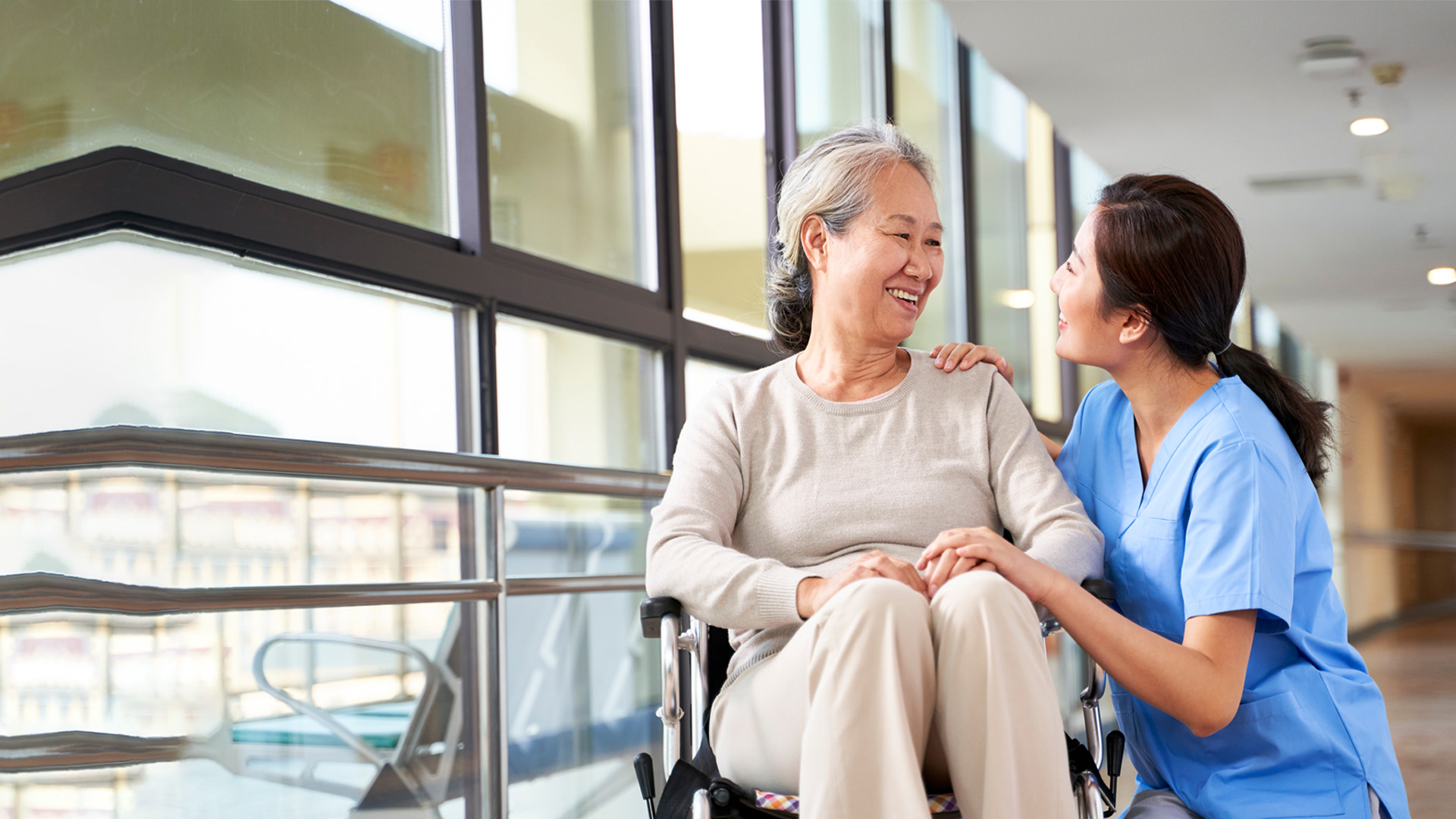![[FA] SIT One SITizen Alumni Initiative_Web banner_1244px x 688px.jpg](/openhouse2025/directory/openhouse/centre-professional-communication/centre-professional-communication/sit-teaching-and-learning-academy/sites/default/files/2024-12/%5BFA%5D%20%20SIT%20One%20SITizen%20Alumni%20Initiative_Web%20banner_1244px%20x%20688px.jpg)
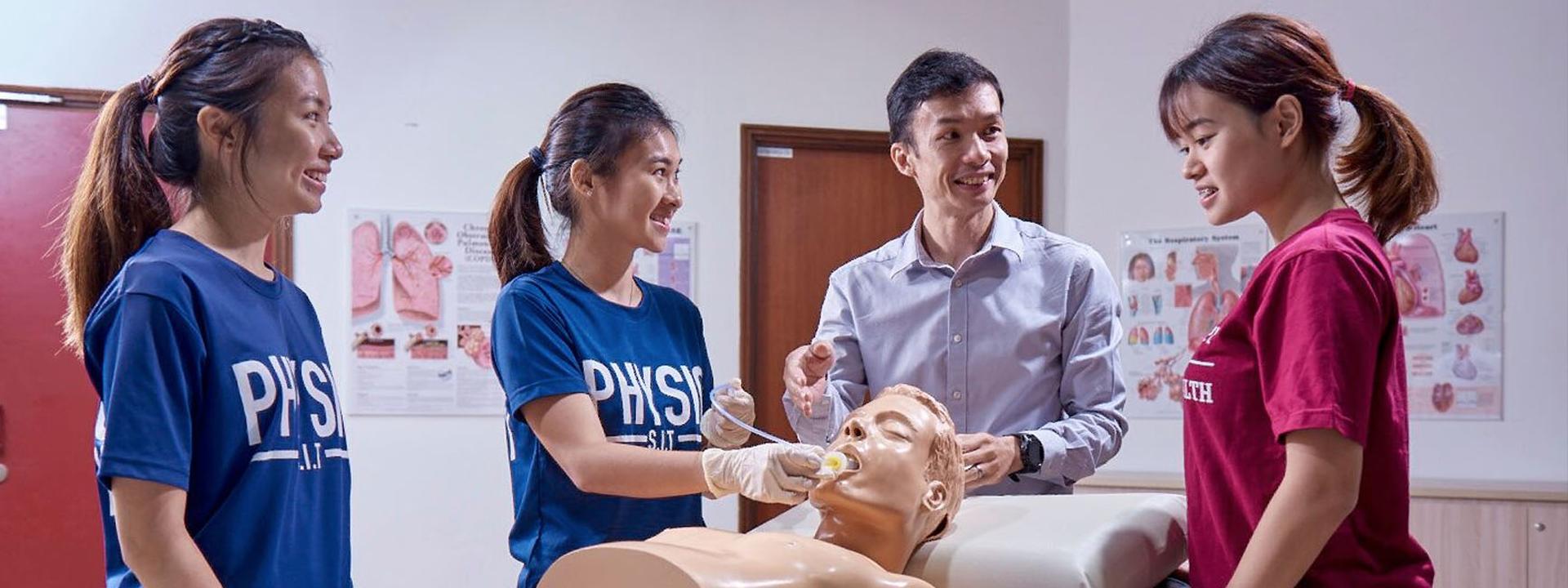
Applied Research
Empowering Healthcare Transformation with SIT
Being committed to empowering healthcare transformation, SIT-HSS strives to drive applied research work through two important strategic thrusts: (1) Enhancing Community Rehabilitation and (2) Promoting Healthy Ageing. These two areas serve to encompass and consolidate research efforts ranging from healthcare engineering and innovation to digital health and community healthcare research.
Our cluster has fostered close connections with various hospitals, healthcare institutions, and community care partners. The ties we have built with these partners allow our research work to reach the right target groups, allowing the community to reap the benefits in the shortest time possible. HSS faculty have the clinical expertise and deep research interests to develop practical solutions for existing healthcare issues and empower healthcare professionals with evidence-based practice. There are exciting plans to enhance SIT’s research capabilities, which include the setup of a new living lab to revolutionise rehabilitation with novel technological tools.
We invite local or international scholars and researchers with deep interests in healthcare transformation to collaborate and work with us. We believe that our concerted efforts and shared knowledge will enable us to achieve greater heights in healthcare research. At the same time, we hope to make resources available for the community and create sustainable and quality healthcare in the near future.
Featured Research Projects
Explore our evolving projects that connect the dots between new knowledge, innovative technologies, and real-life applications in healthcare and community settings.
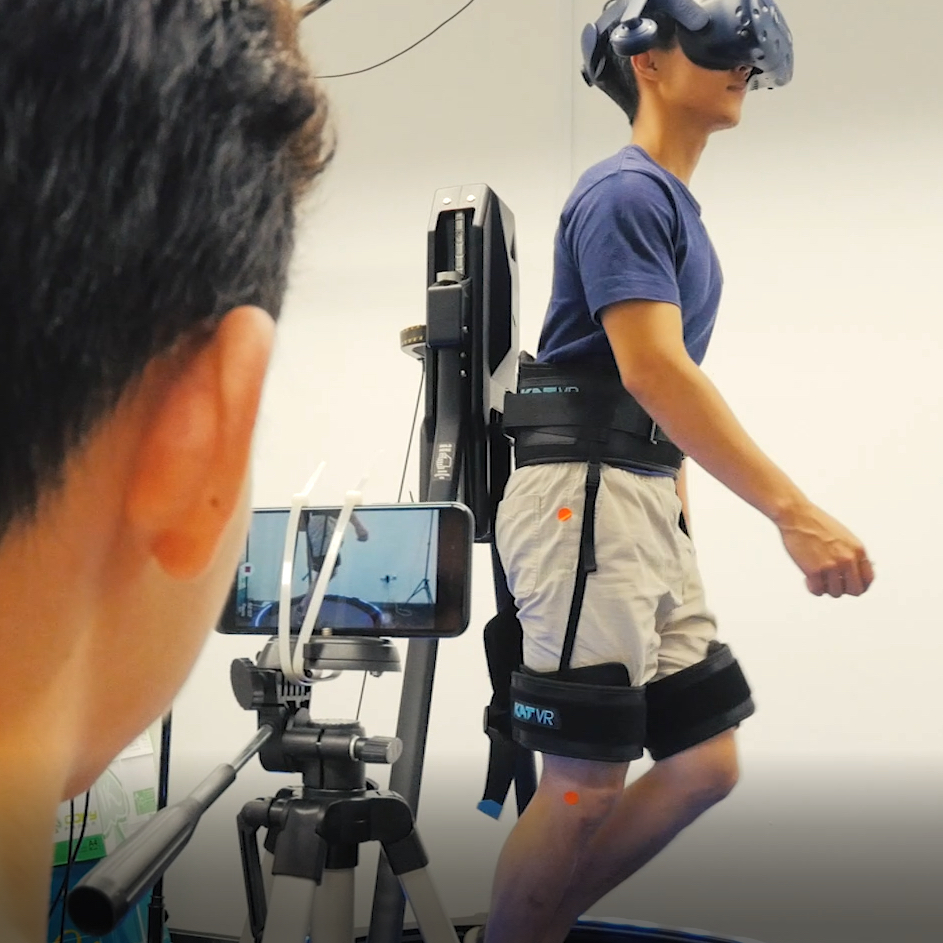
Virtual reality mobility training (VRMT)
A/Prof Benjamin Soon (HSS), A/Prof Alfred Tan (Engrg), A/Prof Tan Chek Tien (ICT), A/Prof Loo Poh Kok (ICT)
Students: Year 3 HSS-PT and Engrg-UofG
External Collaborator: NTFGH
Purpose:
The VMRT system will allow users, such as patients with dementia, who are unable to ambulate outside safely, to walk in an environment that has meaning to them while they are staying in a nursing home.
Notable Features:
- New approach of balance and ambulation training using omnidirectional platform and VR.
- Simulation of familiar living environment to encourage mobility for the elderly.
Project Status:
Preliminary testing of device prior to clinical stage.
Augmented reality games to enhance vocational ability of patients (REAP)
A/Prof Tan Bhing Leet (HSS), Asst Prof Frank Guan (ICT), Oran Devilly (ICT), A/Prof Wong Boon Seng (HSS)
External Collaborators: BizLink, Columbia University USA.
Purpose:
Persons with cognitive problems often have problems obtaining employment due to inability to fulfil job demands.
Notable Features:
This project is developing gamified work scenarios using augmented reality (AR) to train patients in a safe environment.
Potential Impacts:
- Improve the vocational skills of adults with cognitive impairment.
- Provide flexibility in the time and space for service users to conduct the training.
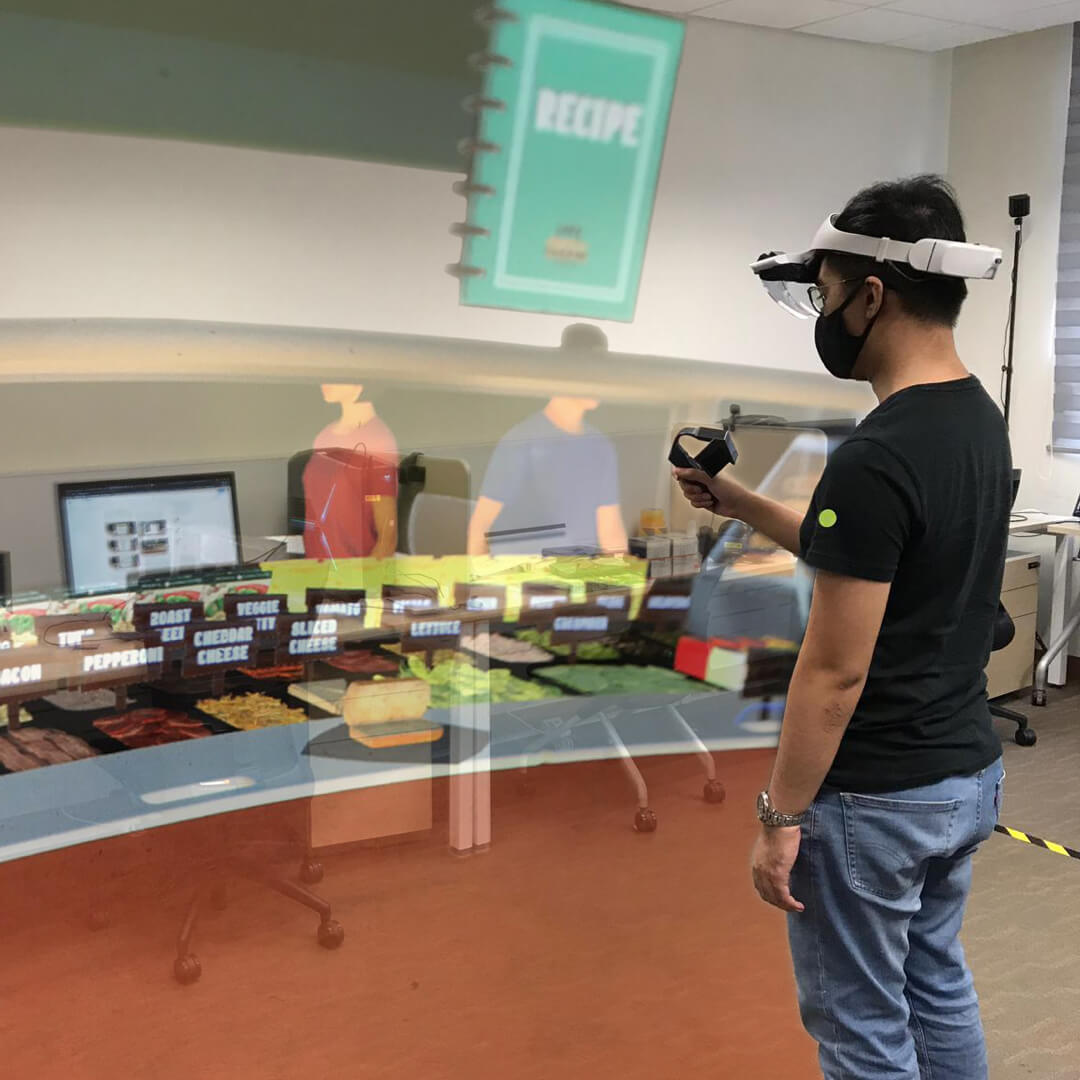
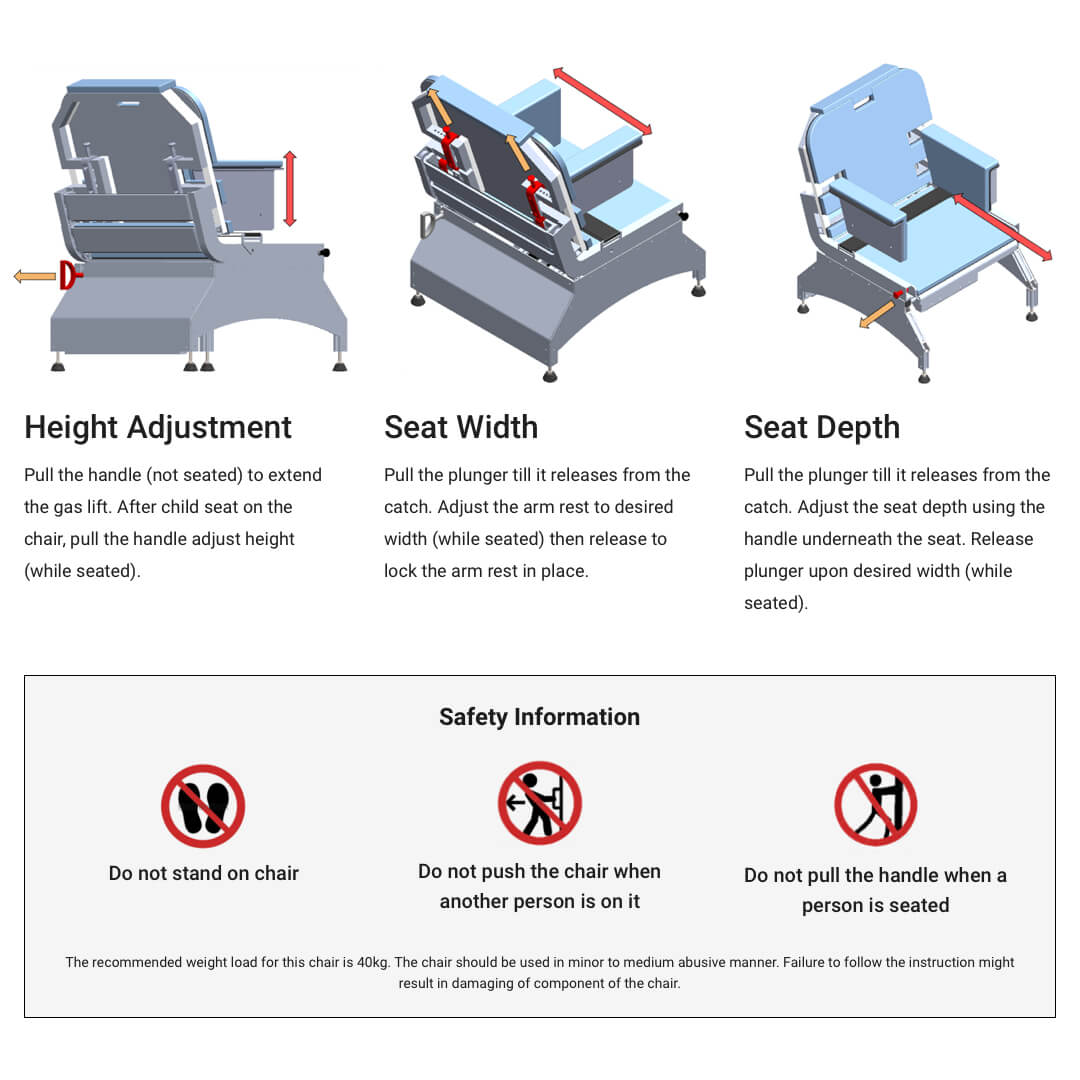
Designing classrooms and furniture for children with special needs in Singapore
Asst Prof Karina DANCZA (HSS), Asst Prof Kyrin LIONG (Engrg), Mr Mark TEO (DSB), A/Prof Steven TAY (Engrg)
Students: 4 x HSS-OT, 2 x ENG
External collaborators: Ms Lynette GOMEZ (Rainbow Centre), Mr Samuel LEE (HOPE Technik Pte Ltd), Ms Jacqueline YEO (Plystudio Architects Pte Ltd)
Purpose:
- Guide design solutions for inclusive classrooms that can be integrated in new and existing special needs schools.
- Collaboratively design a classroom chair that is comfortable, adjustable, and provides support.
- Explore how communication takes place between different professionals and identify recommendations to support future successful collaborations.
Notable Features:
- A chair prototype will be developed.
- Classroom recommendations will be created, and a classroom may be remodelled as a demonstration piece.
- Augmented reality will be employed to aid the design process.
Implications:
Creating practical ways to support children’s engagement and learning in the classroom through the careful design of furniture and classroom features will benefit children and families at Rainbow Centre as well as other special needs schools in Singapore.
Intergenerational bonding programme (IGP) to promote social connectedness
Asst Prof Ingrid Wilson, Asst Prof Yeh I-Ling
External Collaborator: St. Joseph’s home
Students: 3 x HSS-OT
Background:
- IGPs bring together different generations in shared activities.
- It improves health and social connectedness among older adults and children. However, existing experiences and evidence are mainly produced in overseas contexts.
Project Aim:
Investigate the facilitators and barriers of programme implementation of Intergenerational bonding Programme (IGP) at St. Joseph’s Home (SJH), which has a unique co-locatio
Implications:
- Findings of the project will inform SJH of the quality of core components of its IGP – the design, staff training and programme delivery, implementation, and evaluation.
- For other Singapore service providers to develop and implement intergenerational bonding programmes as part of the national ageing strategic effort.
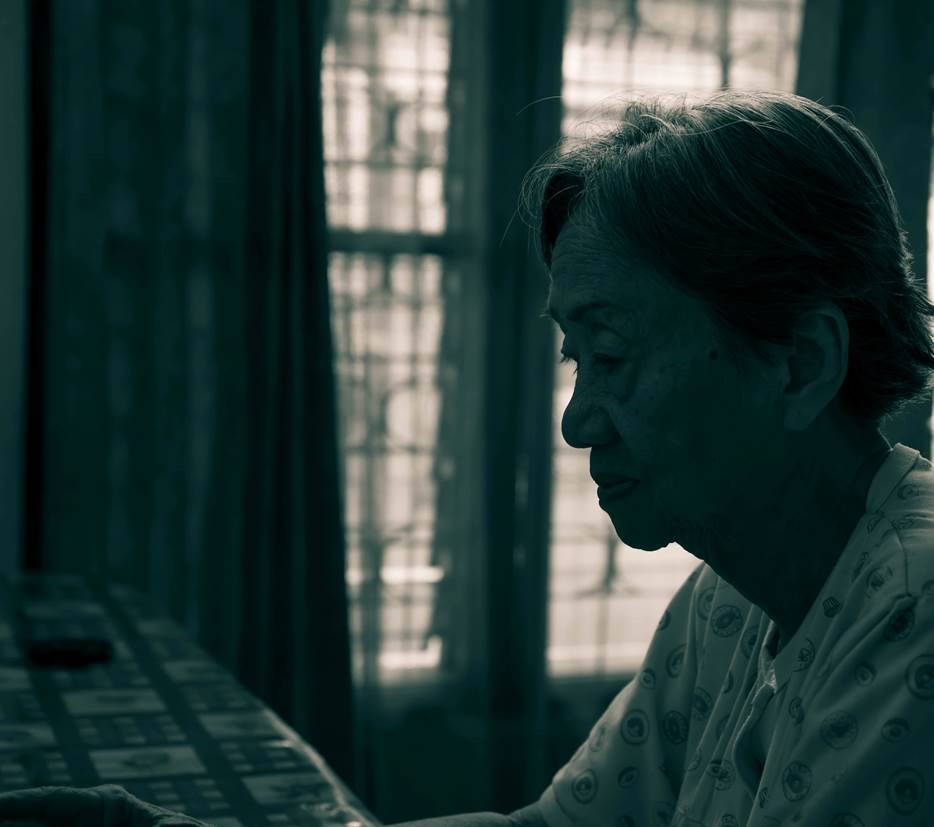
Photo by Steven HWG on Unsplash
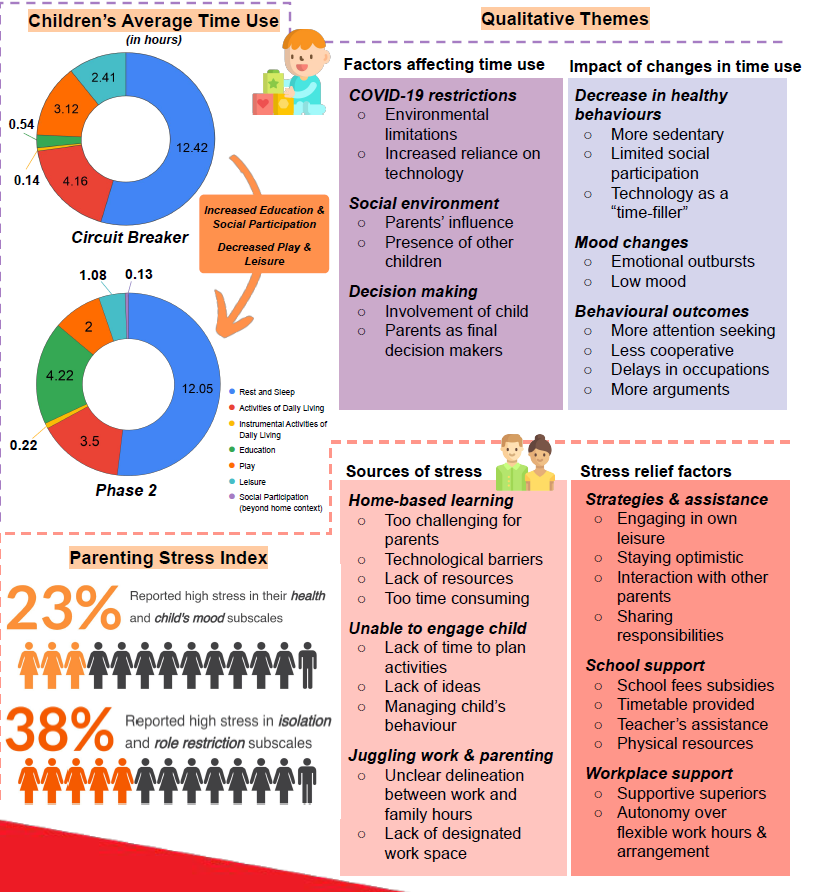
Exploring parents’ choice of activities and caregiving stress levels for their neurotypical preschool children during COVID-19 in Singapore
Ms Corrine Hoo
Students: 4 x HSS-OT
Purpose:
To investigate the effects of COVID-19 on the occupations of preschoolers and their parents’ caregiving stress and challenges.
Notable Features:
- Imbalance in the types of occupations that the preschoolers engaged in.
- Decrease in healthy behaviours of preschoolers with some mood and behavioural changes
- Parenting stress come from
- Difficulties engaging the child (beyond increased screen time)
- Juggling work and parenting
- Home-based learning for the children
Implications:
- Parents need to overtly create balance in occupations for self and the child.
- Stress relief comes in many forms: personal strategies, support from the children’s school, and also from the workplace.
- Screen time can be used creatively for social participation and family bonding (beyond sedentary entertainment).
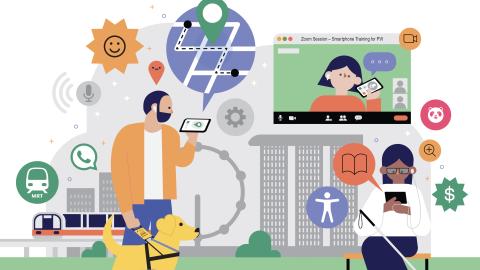
Smartphone Training Toolkit for People with Visual Impairment
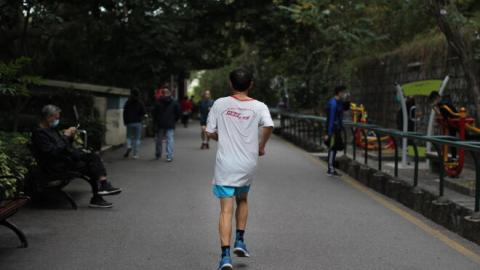
Study finds stroke survivors’ inactivity extends beyond a lack of motivation.
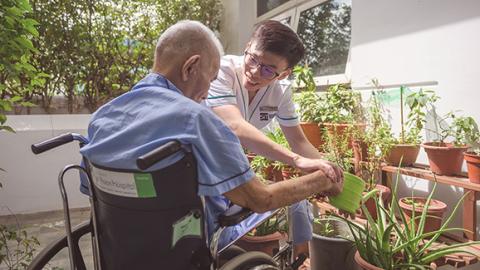
Designing Activity Space for Dementia Patients
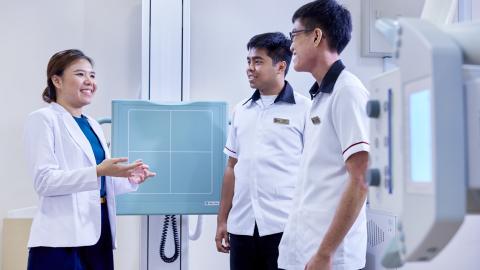
Improving Patient Care Through Applied Research
Explore Our Clinical Research Programmes
Ignite your passion and discover exciting postgraduate opportunities in clinical research.
Contact Us
We invite scholars and researchers who have interest in the health sciences to collaborate with us in applied research. There are also opportunities to work with students in their Honours research projects.

